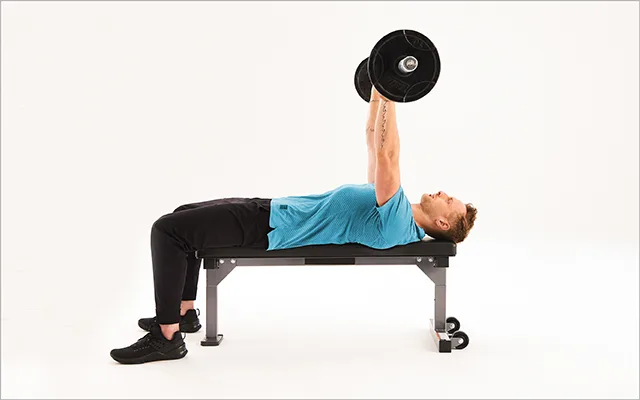Chest Press
DEFINITION
The chest press is a strength training exercise that targets the pectoral muscles as well as the front deltoids and triceps. It involves pressing a weight away from the chest while lying supine on a bench.
EXPLANATION
- Can be performed with barbells, dumbbells, or machines. Barbell bench press is the most common.
- Primary muscles worked are the pectoralis major and minor of the chest. Front deltoids and triceps are assisting movers.
- By developing the pecs, the chest press builds upper body strength and size. It also aids in pushing power for sports.
- For maximum pec activation, bring the bar down to nipple level and press along the same path.
EXAMPLES
- Barbell bench press – flat, incline, or decline
- Dumbbell bench press – allows for greater range of motion
- Machine chest press – fixed movement pattern with less stabilization
RELATED TERMS
- Spotter – person who assists lifter and can take weight if failed rep
- Powerlifting – competitive barbell bench press is a key lift
COMMON QUESTIONS
- What grip width is best? Slightly wider than shoulder-width targets pecs rather than triceps.
- Is dumbbell or barbell better? Dumbbells allow greater ROM but can’t load as heavy weight.
DO NOT CONFUSE WITH
- Push ups – similar movement pattern but done against own bodyweight.
- Overhead press – vertical press targeting deltoids rather than pecs.
75
/ 100
SEO Score
Thank you for reading this post, don't forget to subscribe to our free newsletter
!
